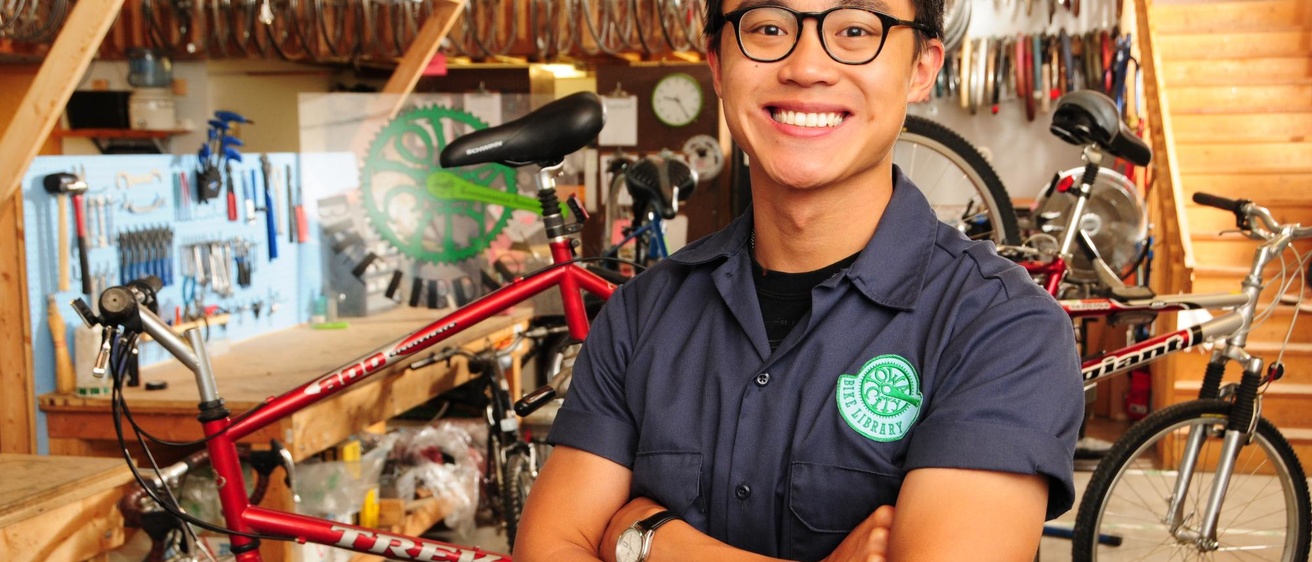Willy Tan didn’t bring a car to college because he prefers two wheels to four—and he’s working to make bikes more accessible to students and the Iowa City community.
“Iowa City is a bike-friendly place, and I’m interested in putting more bikes on the streets—and fewer cars,” says Tan, a senior from Marshalltown majoring in accounting in the Henry B. Tippie College of Business. He’s also a student intern at the UI Office of Sustainability and has already applied the knowledge he’s acquired in his accounting courses to helping his employer and the environment.
Tan applied for the internship because a friend thought his love of numbers and business sense would help campus sustainability leaders as they applied for a grant from the Iowa Department of Transportation to create a bike-sharing program.
“I conducted research for three to four months to help with the grant proposal and business plan. I applied what I’d learned in my Cost Accounting coursework to price out the system,” he says.
His contributions paid off when the Iowa Department of Transportation approved the grant for $135,300 to help fund a bike-sharing program. He assisted with a second grant application from Coca-Cola, which was approved for $50,000.
Tan’s passion for bikes runs deep. He’s not only business smart, but he’s mechanically inclined, too—so much so, that he built his own bike from scratch in a UI course, Hand-built Bicycles I and ll, a machine that he rides across campus daily. He even displayed his creation at the North American Handmade Bicycle Show in Louisville at the encouragement of Steve McGuire, professor of art and art history in the College of Liberal Arts and Sciences.
Tan’s also working on a bike for his sister, which he plans to show at the handmade bike show in Sacramento in late February.
He also volunteers at the Iowa City Bike Library where he reconditions donated bikes and helps community members who rent a work bench and tools to make repairs.
The university’s proposed bike-sharing program will have three or four bike stations across campus and 10 to 15 bikes in each station. Organizers are considering a kiosk-based system where bikes are docked, checked out, and returned to another docking station in the community. Also under consideration is a model where users would pay an annual fee and then have the ability to check out a bike one hour at a time. If the bike is returned within the hour, there is no fee to the user.
“My hope is that students who are unable to bring a bike with them to college can use this program as a resource,” Tan says.
Tan will take his love of bikes to another renowned bike-friendly town after graduating in May; he has a job lined up with Deloitte in Minneapolis.
This story is adapted from one that appeared in The Ledger, published by the Department of Accounting in the Henry B. Tippie College of Business.
